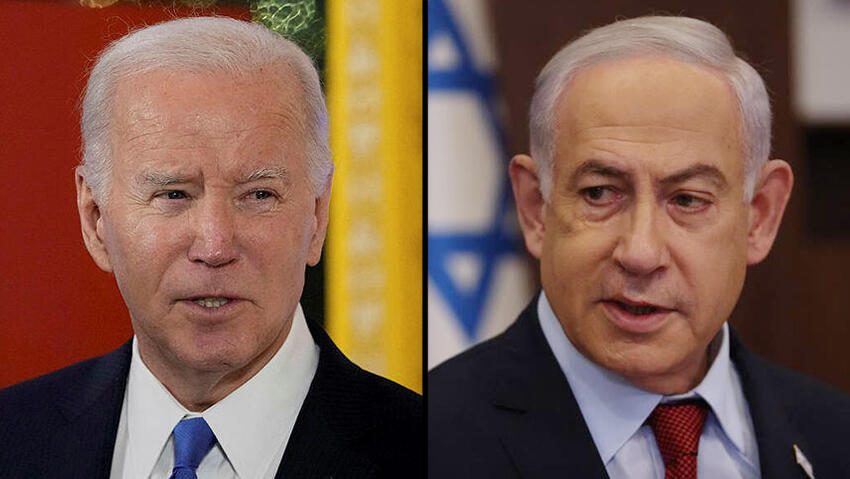Getting your Trinity Audio player ready...
Israel planned to launch a preemptive strike against Hezbollah on October 11 which was narrowly averted due to intervention from U.S. President Joe Biden, the Wall Street Journal reported on Saturday.
More stories:
The assault plan came on the heels of Hamas’ invasion of southern Israel and, according to the report, was based on intelligence Israel had that Hezbollah attackers were preparing to cross the border as part of a multi-pronged attack. The U.S. reportedly deemed the information unreliable.
Israeli officials told Ynet that Aryeh Deri, leader of the ultra-Orthodox Shas party and a close ally of Prime Minister Benjamin Netanyahu, approached Benny Gantz and Gadi Eisenkot, leaders of the centrist National Unity party and then part of the opposition. He urged them to form a broad national unity government and convene the war cabinet, calling it "a matter of life and death."
The cabinet convened for briefings amid alarms of widespread drone attacks across northern Israel. Cabinet members headed to the bunker, with officials sensing a potential pretext for an attack. However, it was later confirmed that there were no drones, and the alarm was false.
The Journal reported that Israeli warplanes were in the air awaiting orders when Biden spoke to Netanyahu on Oct. 11 and told the prime minister to stand down and think through the consequences of such an action, according to people familiar with the call.
2 View gallery


US President Joe Biden and Prime Minister Benjamin Netanyahu
(Photo: Reuters, Yonatan Sindel/Flash90)
U.S. officials reportedly first learned of Israel's intent for a preemptive strike on the morning of Oct. 11 at about 6:30 a.m. Washington time when Israeli representatives urgently informed the White House of a suspected Hezbollah assault. Acknowledging the need for assistance, Israel sought American backing for its proposed action, according to U.S. officials.
On that morning, Biden's intelligence, military and national security chiefs met to discuss Israel's plans, where it was noted that U.S. intelligence did not align with Israel's. After being briefed, Biden spoke with Netanyahu and the war cabinet, urging Israel not to proceed with the strike.
Netanyahu wasn't entirely convinced, while more hawkish members of the war cabinet, particularly Defense Minister Yoav Gallant, argued that a broader war was inevitable and wanted to proceed with the plans. The U.S. responded that a larger war could still be averted.
A rocket volley from Lebanon on northern Israel, October 10, a day before Israel's planned attack
Gallant continued to insist that a preemptive strike was necessary, but the majority of war cabinet members believed the focus should remain on Gaza, not the northern front.
Following further discussions and meetings, six hours later - according to the report - Israel abandoned the preemptive attack and essentially accepted the American assessment that there was no evidence of an imminent Hezbollah attack.
The Prime Minister's Office denied the report. "The report is incorrect. From the first day of the war, the prime minister decided that Israel would first seek a decisive victory in the south while maintaining strong deterrence in the north. This policy was adopted by the cabinet," Netanyahu’s office said in response.







